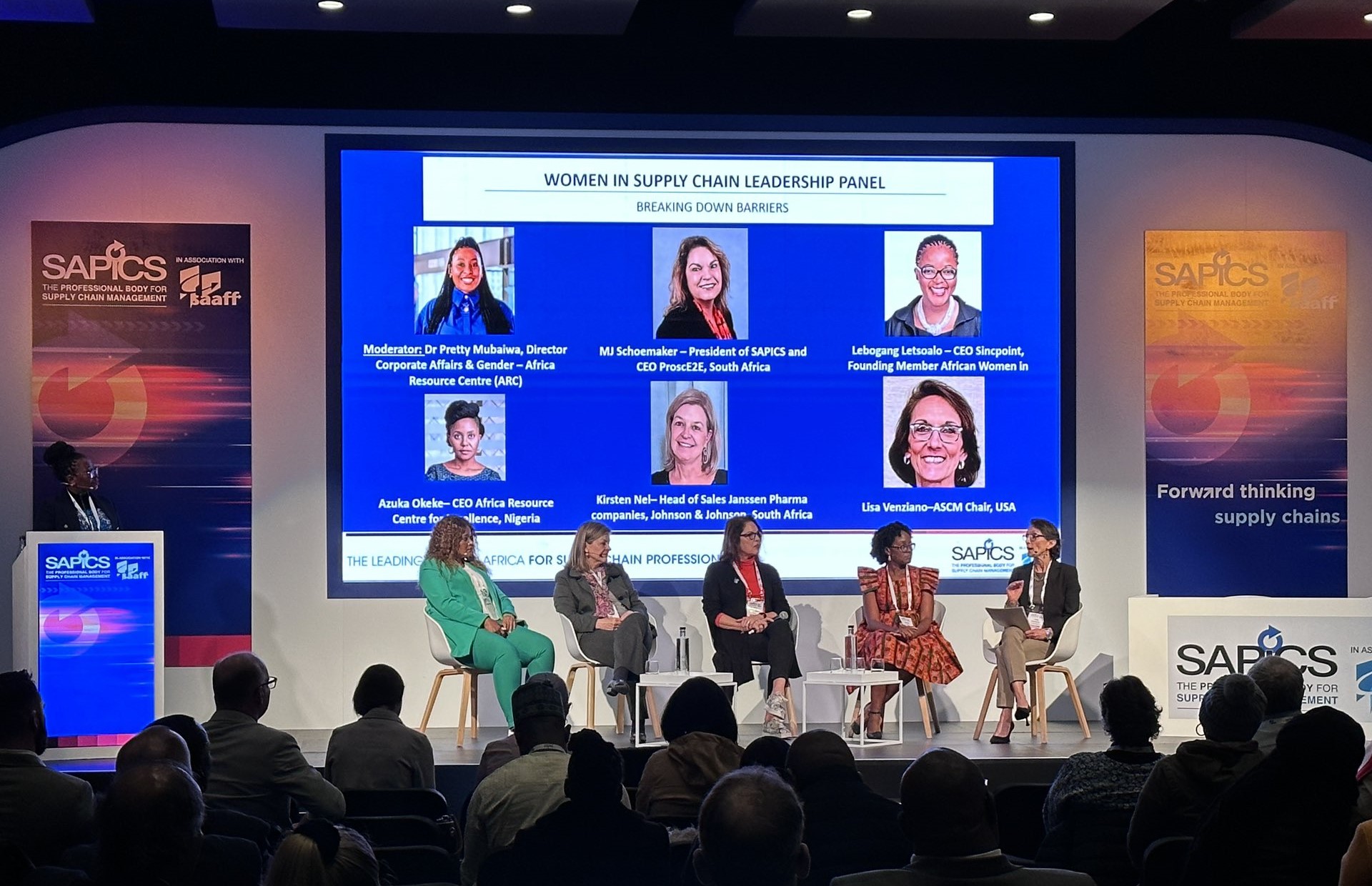For the first time this year’s SAPICS conference featured a public health supply chain track, offering development agencies, donor organisations and non-governmental organisations (NGOs) the chance to discuss strategies to reach Agenda 2030 and universal health coverage with private sector supply chain partners.
The conference was the first of three supply chain conferences on the topic to be held over the next few months; the Global Health Supply Chain Summit (14 to 16 November in Nairobi) will centre on sustainable and resilient supply chains for equitable access to healthcare, while in March 2024 in Bangkok the PtD Global Indaba will keep the people ball rolling with the theme, The supply chain workforce: Solutions to transform health supply chains.
The SAPICS conference event planner Jenny Froome thought it was important to raise the profile of health supply chains at the conference: “Many of the challenges facing health supply chains are also present in other sectors and we thought it was important to not only draw attention to health goals, like Agenda 2030, but also to bring different stakeholders together to learn about new and innovative approaches to overcome, what are often, mutual challenges.”
PtD led the way with professionalisation
One of the stand-out panel discussions was Getting practical with supply chain professionalisation, which, moderated by Management Science for Health’s Andrew Brown, featured People that Deliver (PtD)’s executive manager Dominique Zwinkels, Rebecca Alban from VillageReach and Azuka Okeke from Africa Resource Centre for Excellence in Supply Chain Management, as well as Douglas Kent from the Association for Supply Chain Management.
The discussion highlighted the importance of professionalising the supply chain workforce, which means ensuring supply chain management professionals have the right skills, motivation and working conditions, and are employed in the right number, to run health supply chains. A lack of adequately-skilled and supported supply chain professionals is one of the reasons ‘a third of the world’s population doesn’t have access to medicines,’ said Andrew Brown.
PtD’s executive manager was keen to ask why, if $50 billion is spent on health products annually, are the people managing these products in the supply chain often ill-equipped? She drew attention to PtD’s supply chain management (SCM) professionalisation framework, which addresses many workforce challenges.
Developing career pathways
SAPICS 2023 opened with a discussion on artificial intelligence (AI), during which DP World’s Corbus Rossouw said “People will not be replaced by AI, they’ll be replaced by people who use AI.” Chaired by Iain Barton, Founding Principal of Health 4 Development, participants emphasised the need for supply chain professionals to keep pace with technology through appropriate and targeted skills development.
An informal chat on Tuesday highlighted the importance of mentoring to shape and develop the careers of supply chain professionals. Podcaster Stela Jaqueta and Karen Pretorius, Director, KPI Cubed, explained how their mentor-mentee relationship had a benefitted both parties. They were joined on stage by Supply Chain Now’s Scott Luton.
Later that day Africa Resource Centre’s Pretty Mubaiwa led a panel to uncover barriers to women’s careers in supply chain management with a focus on providing support to help their development, while Tijuana James and Kameron Myles from USAID gave their thoughts on how to attract youth to a career in supply chain management.
A new era for the Interagency Supply Chain Group
At the conference an announcement was made regarding the future of the Interagency Supply Chain Group (ISG). A panel, which featured Marasi Mwencha from the Global Fund, Lindabeth Doby from USAID, Tiwonge Mkandawire from VillageReach and Strategic Advisor Maeve Magner explained how the newly-designed ISG now includes a donors’ forum and an expanded group comprising NGOs and other implementing partners.
Once a year, they explained, the group will develop strategic priorities during a joint meeting and working groups will be established to manage their related projects. One example of such a group is the digital transformation working group, headed by Lindabeth Doby, which will work towards developing universally-agreed software standards.
Going forwards the ISG will provide regular external communications on its work and will also strive to advocate its priorities. It was also announced that Baringa will be the new project management unit overseeing its operations.

